Is Remote Online Notarization the Future?
COVID-19 changed the way we do business. So many industries have been affected. Restaurants, concerts, travel, and sports are very different compared to a year ago. Right now, notarization is changing. Is this a temporary phenomenon? Will everything go back to the way it was before quarantine? Or has the face of our notary world changed forever?

To understand the notary world better, we initiated an anonymous online study. The analysis below is based on answers from 400 survey responses collected across all states.
Based on the collected data, we see online notarization as a promising trend. We examine the data below in more detail.
Who Participated
Today, 48 states support online notarizations in one way or another. The majority of states have already created online materials for their notaries. They host online notary registries and they streamlined procedures for extending notary commissions to serve the public online. The top 5 states as per respondents are Texas, Florida, Virginia, Ohio, and Pennsylvania.
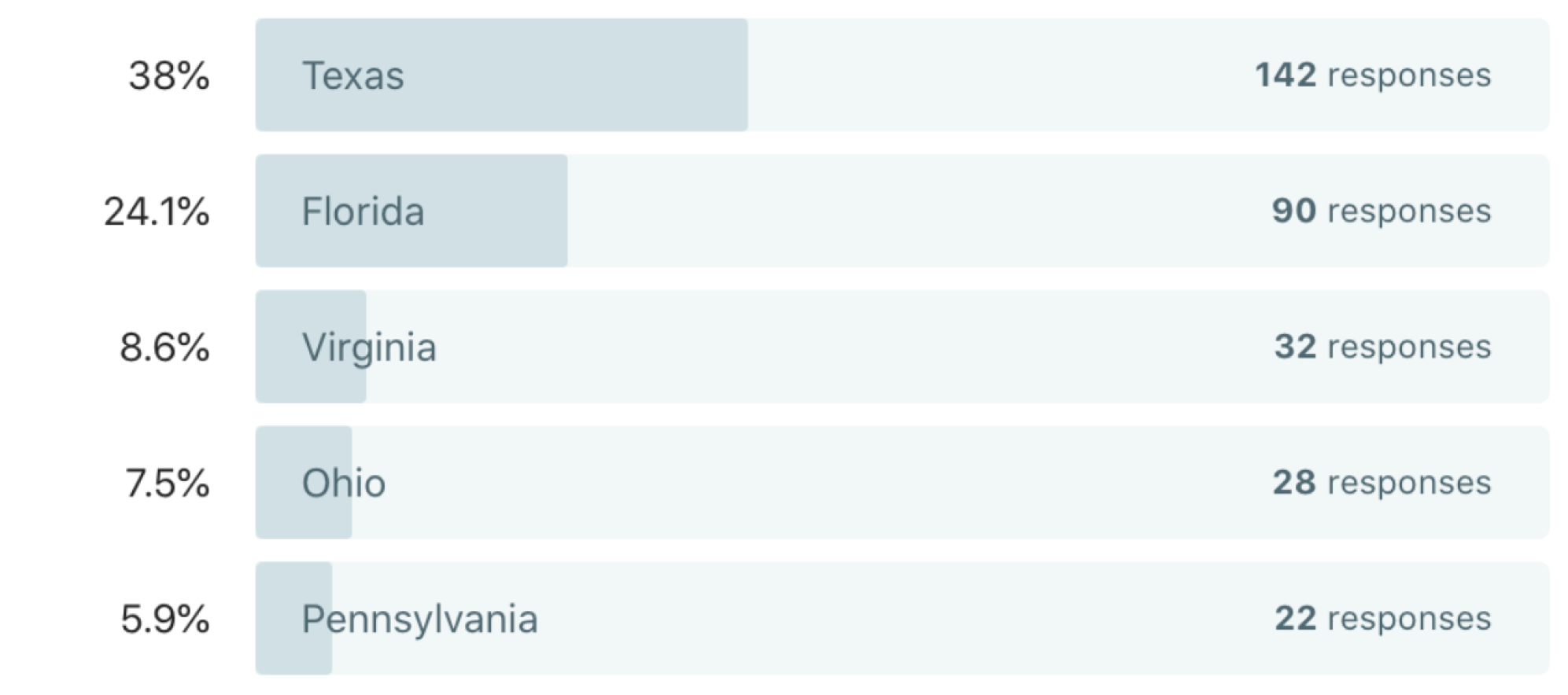
Among participants, we’ve seen loan signing agents and general notaries public.
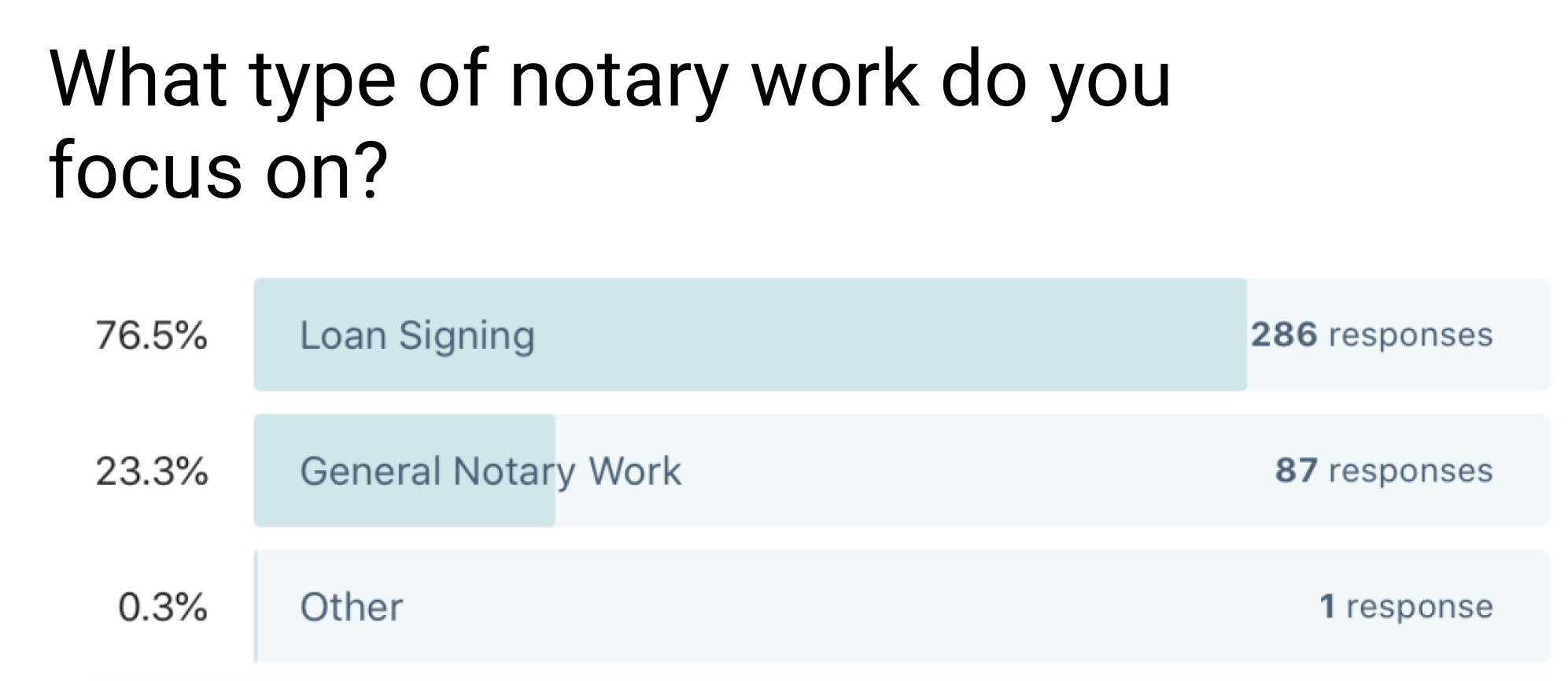
Less than half of the study respondents work full time as notaries. Among those who provide notary services as a way to earn additional income, the amount of time spent varies.
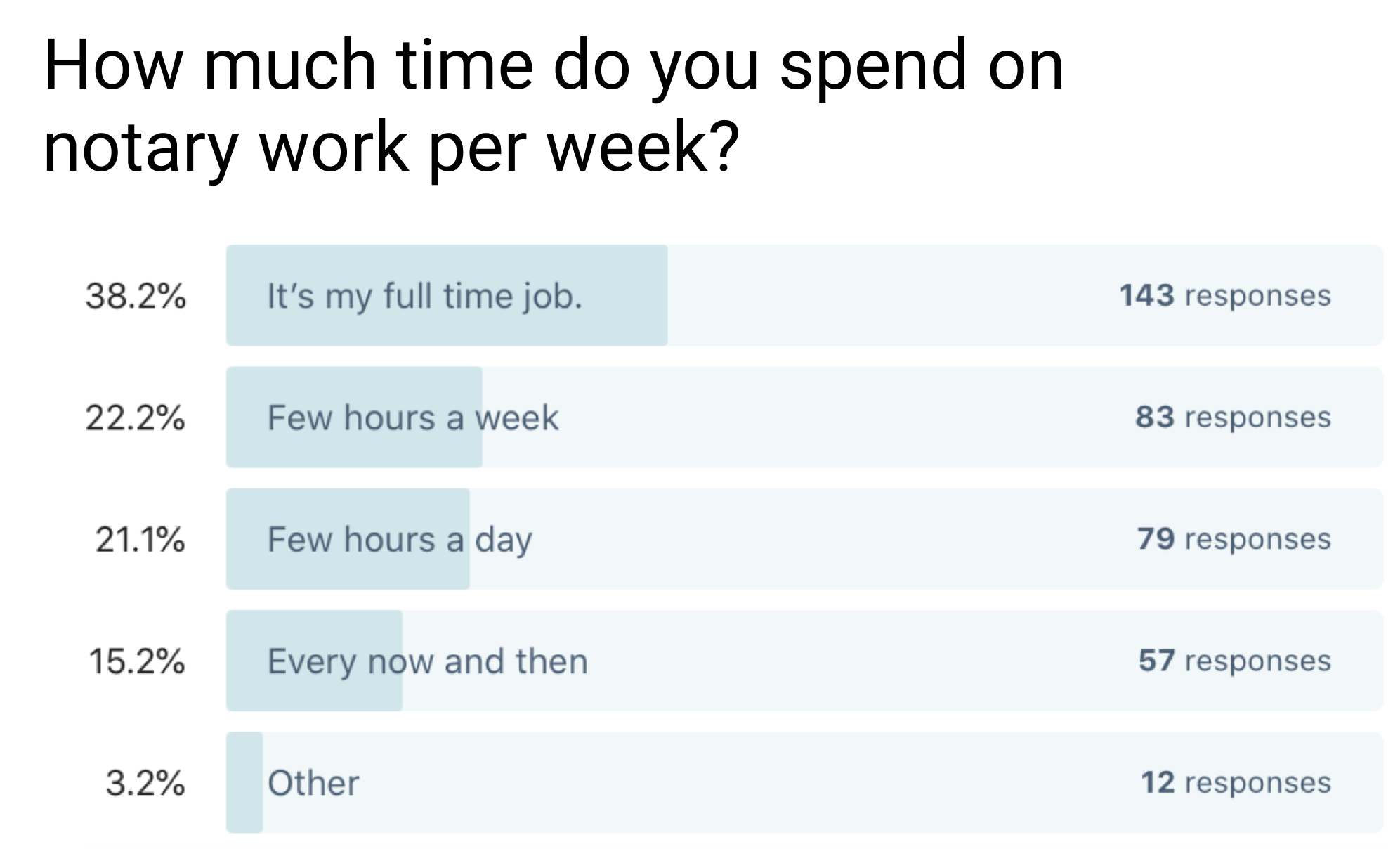
Only 20% of respondents have ever performed an online notarization.
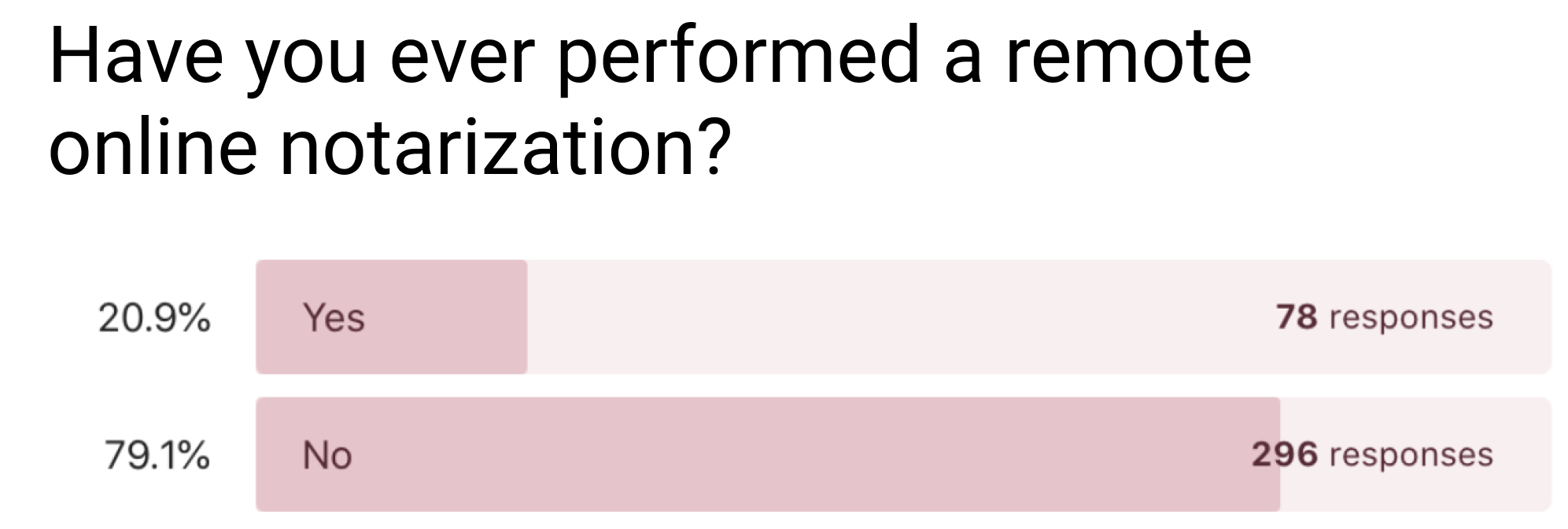
How Online Notary Work Appears
Choosing a Platform
There are several platforms that offer an online notary workspace. When considering a platform there are several points to take into account:
- If the platform serves your state (platform meets your state’s unique requirements).
- Does it support your use case (general notary work or loan signing).
- Does it provides signers or allow you to bring your own.
- Start-up/usage fees (some charge, some platforms are free to a notary to use).
- Does your title company / signing agency work with the platform.
When seeking advice, please be aware that the Secretary of State does not endorse specific platforms. Online training materials may have recommendations, budget calculations, etc.
Currently, the top five RON platforms are DocVerify, Notarize, Pavaso, OneNotary, Signix
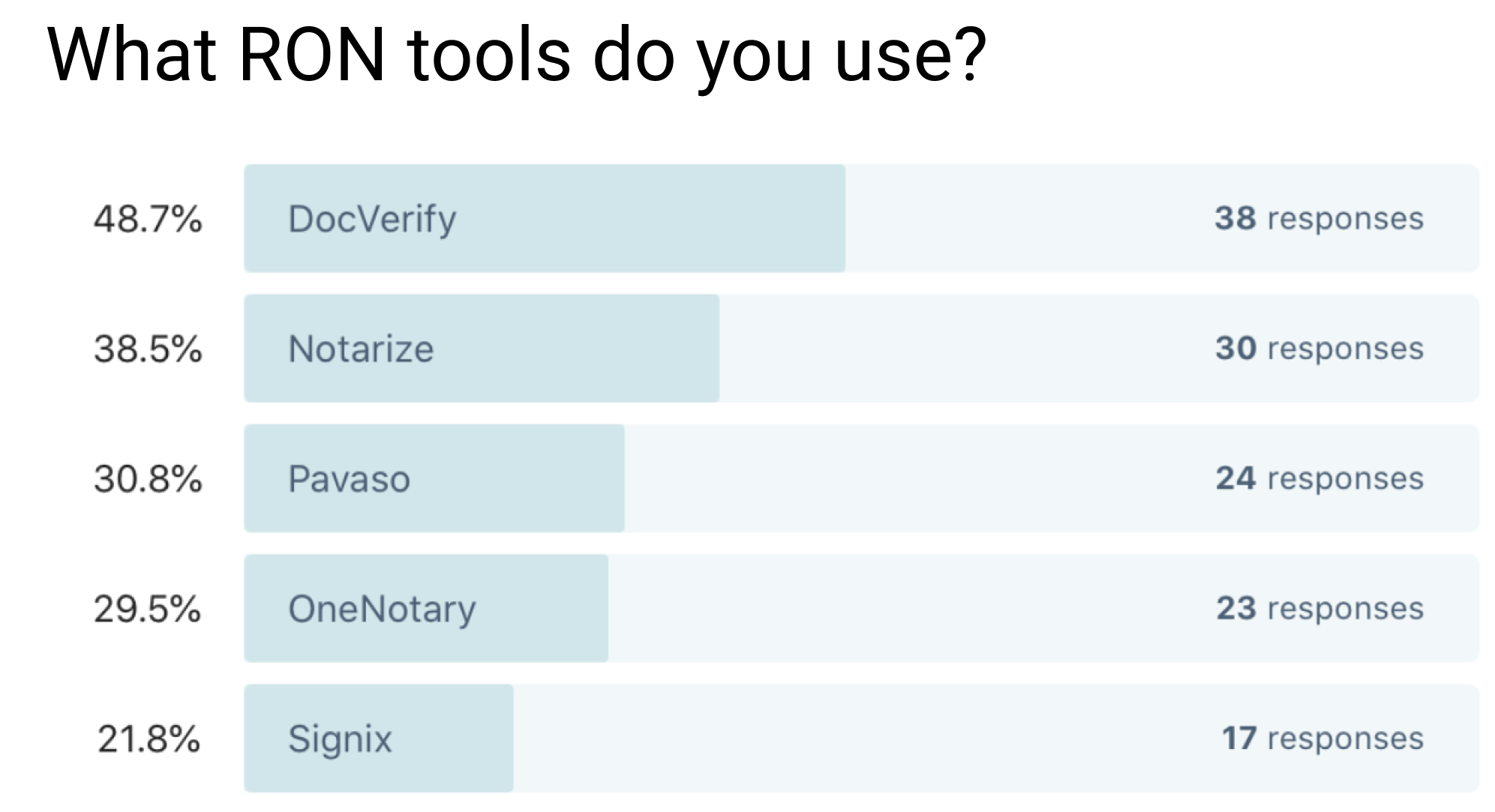
The platforms enable notaries to do the online notarizations, verify the client’s identity, check ID, video-conferencing, real-time e-signing, and video recording.
Getting Customers
The demand for an online notarization grows among clients for general notary work as well as among title companies and signing agencies. The earlier the notary started, coupled with the amount of overall time invested in online notarizations, translates into the highest levels of work completed online. Our study revealed there are online notaries who’ve crossed 500 and even 1,000 notarizations.
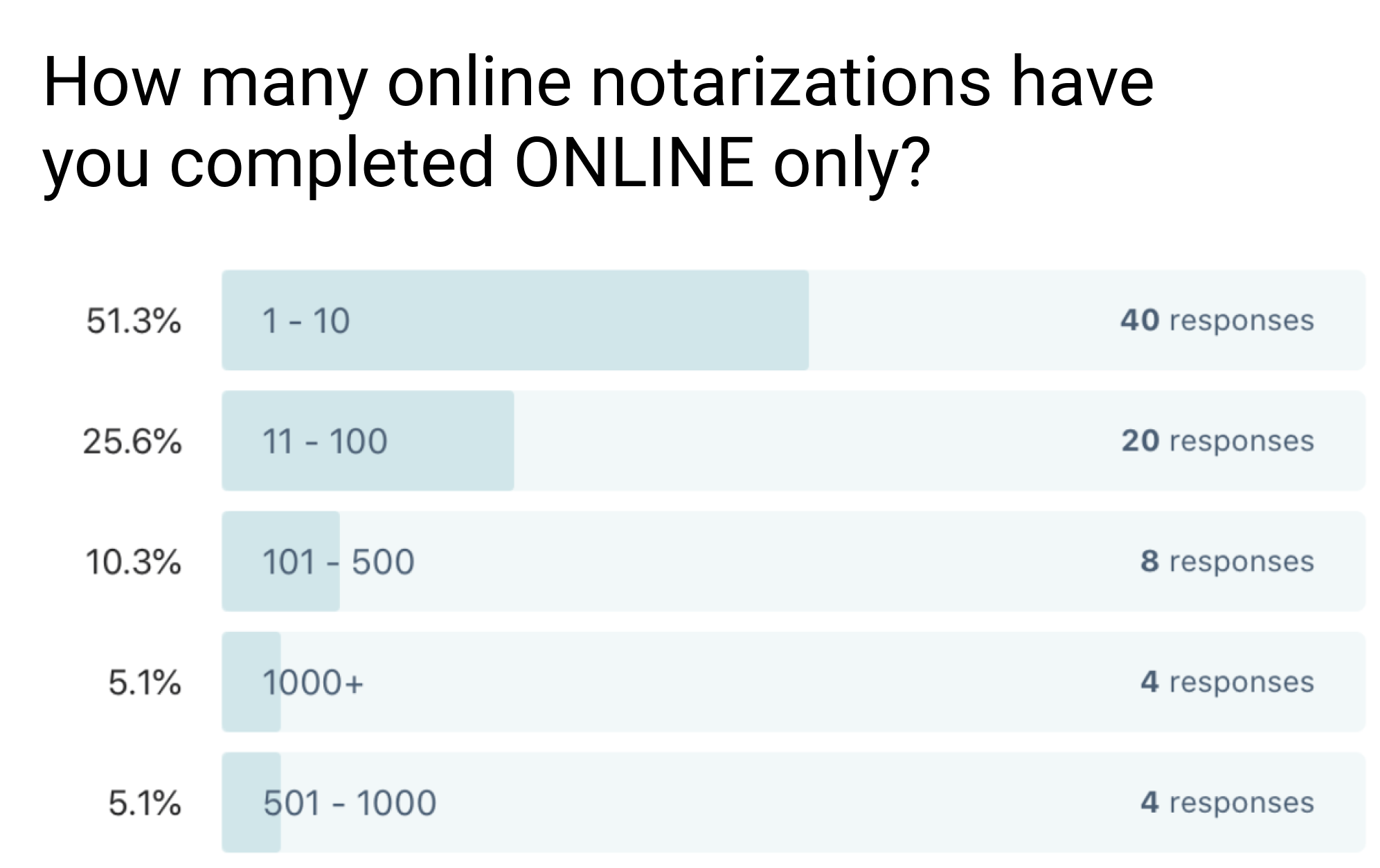
Notaries who explore the possibility of online notarization are often concerned about finding customers. In some cases, practicing online notaries have their own clients who request online notarizations. Some online notaries receive requests directly from a platform, and in some cases, they do both.
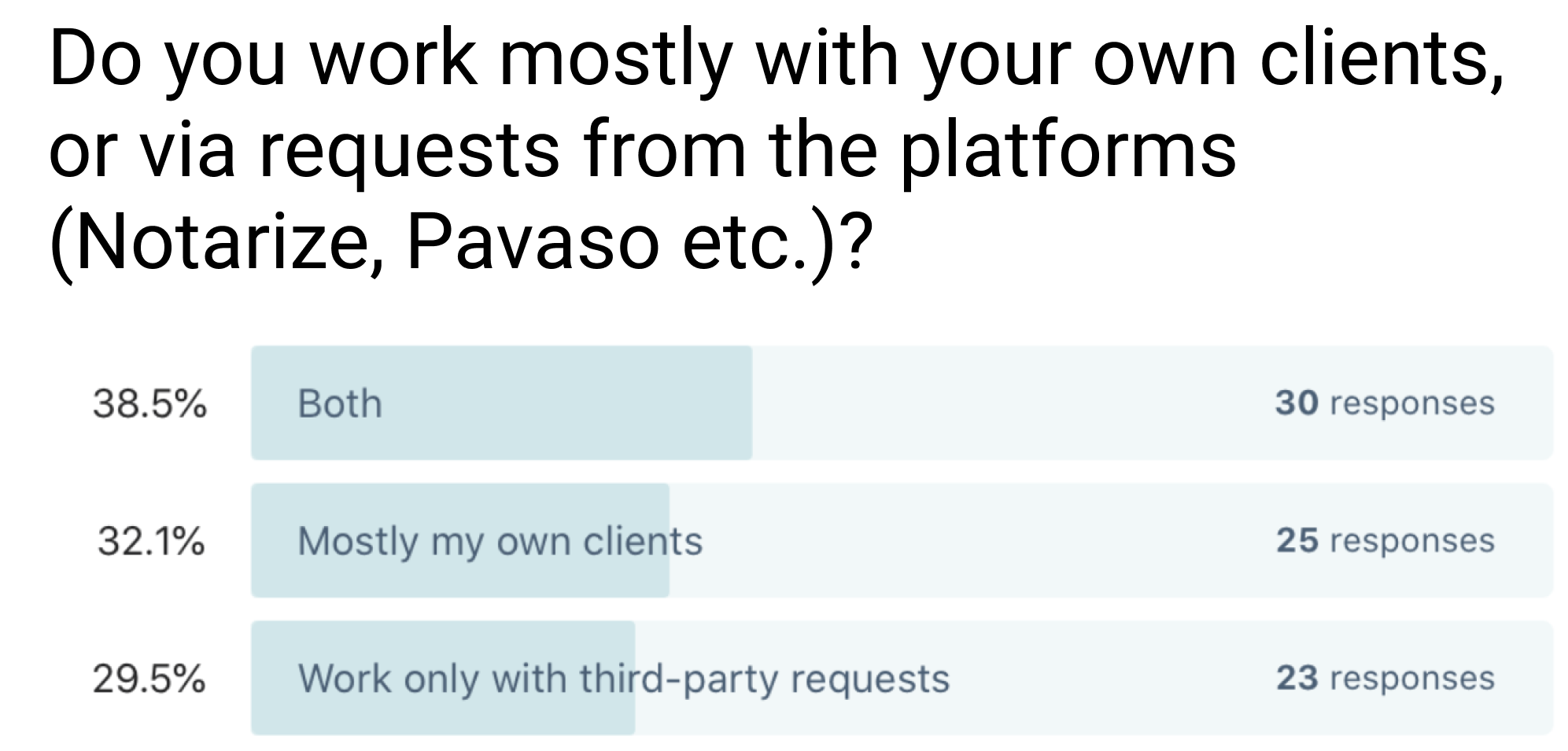
Does anyone have more customers than they can serve? This is not yet the case.
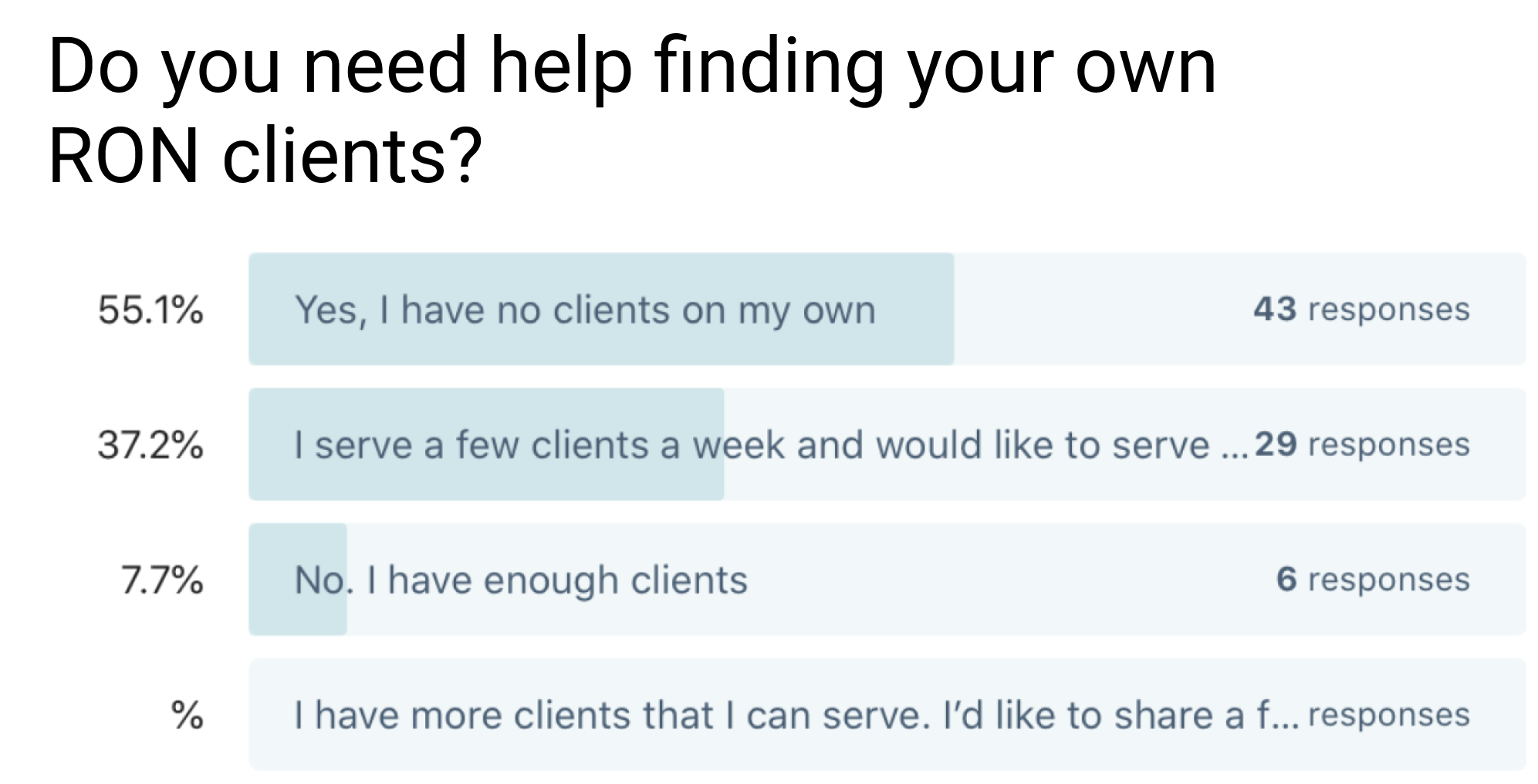
Of the notaries who invest in finding clients on their own, the average marketing spend is around $100.
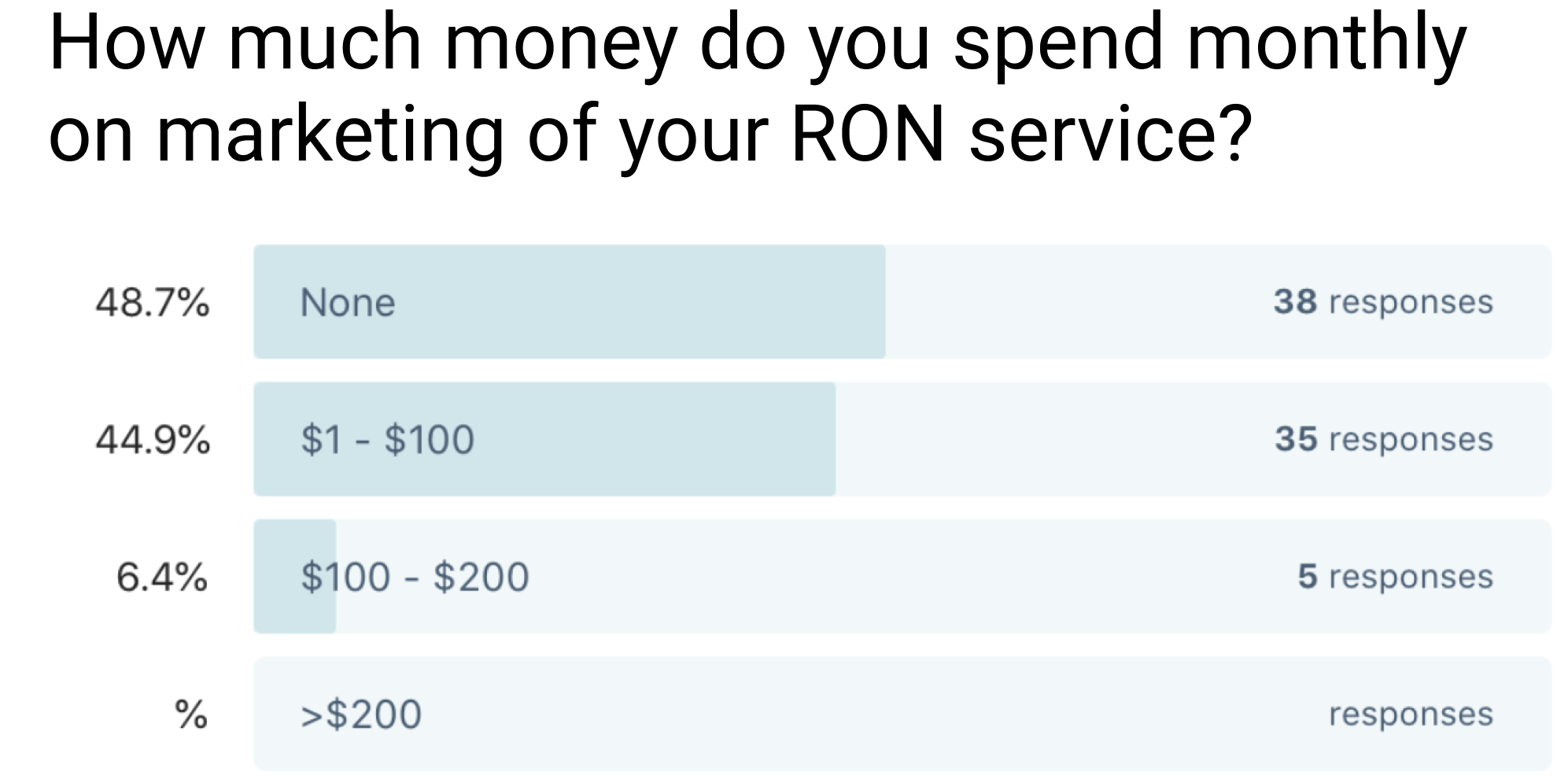
To attract clients globally, notaries set up their own online marketing channels. These include working with specialized service companies, creating individual business websites, and advertising on popular platforms.
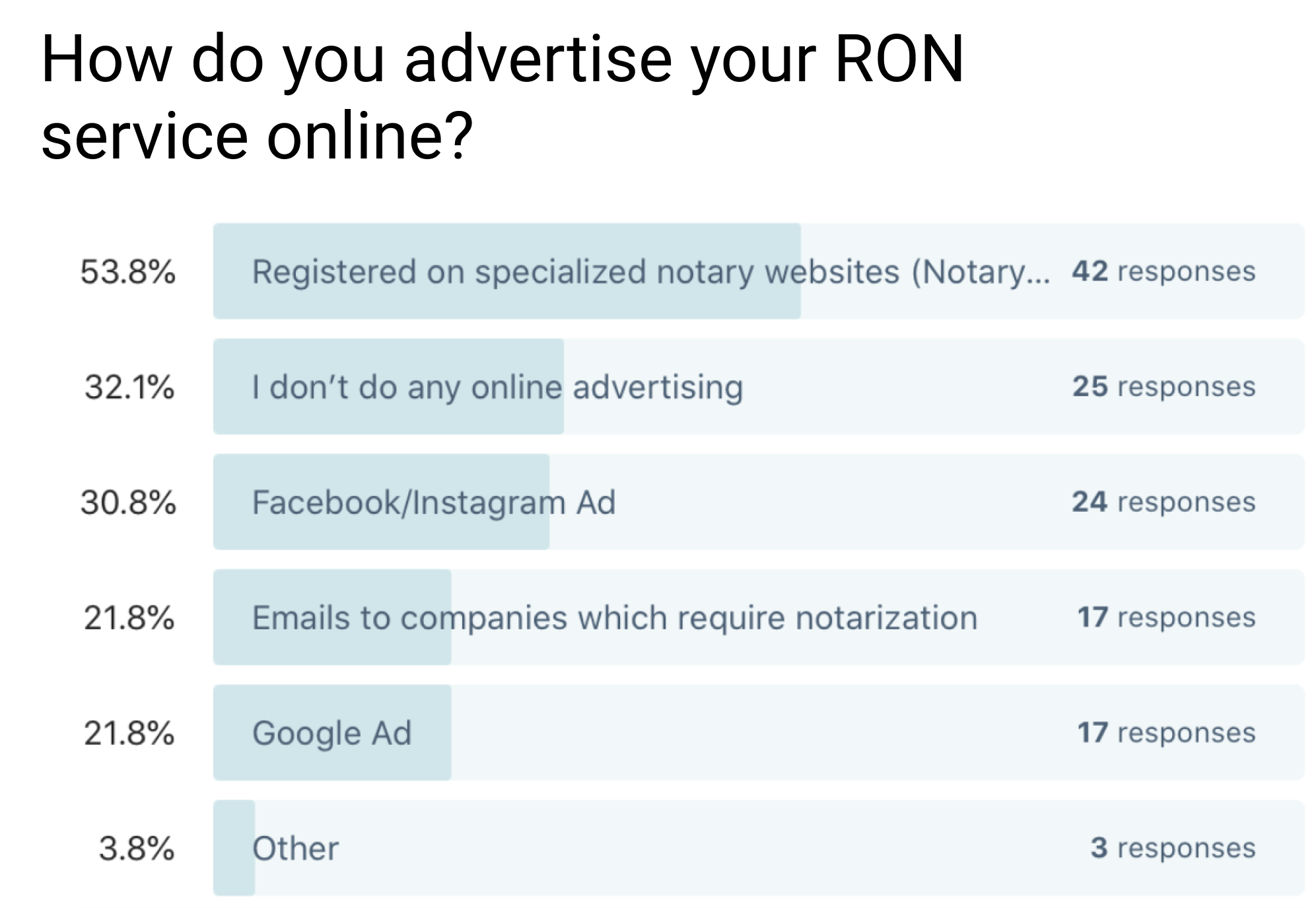
Notaries who focus on serving local communities use various means of offline marketing. Canvassing neighbors and local businesses, providing extra notarial help to employers, visiting conferences, and reaching out to government institutions are some of the outside marketing strategies.

Issues with RON at the Moment
Notaries who already perform remote online notarizations face the high cost of starting with specific platforms, trust issues from potential clients, and technical issues.
Platform Cost
Price models for platforms range widely. There are platforms with paid subscriptions, credential analysis charges, and video storage fees. There are companies whose service is free to use, but a portion of the signer’s payment is retained by these companies. Data shows that platform cost is currently the primary concern for slightly more than half of the participants.

Trust
Online notarization is a relatively new concept for notaries as well as for customers. It takes time for people to get used to this novel way of doing business. The good news is, as per the survey results, there are institutions that are starting to accept the documents notarized online. Title companies and online signing agencies are signing contracts with online notary platforms to streamline their customer experience. Step by step, the industry gains trust in online notarization.

Technical Issues
Among the challenges, notaries encounter with the platforms are audio/video issues related to browser compatibility, identity verification, and photo ID capture failures.
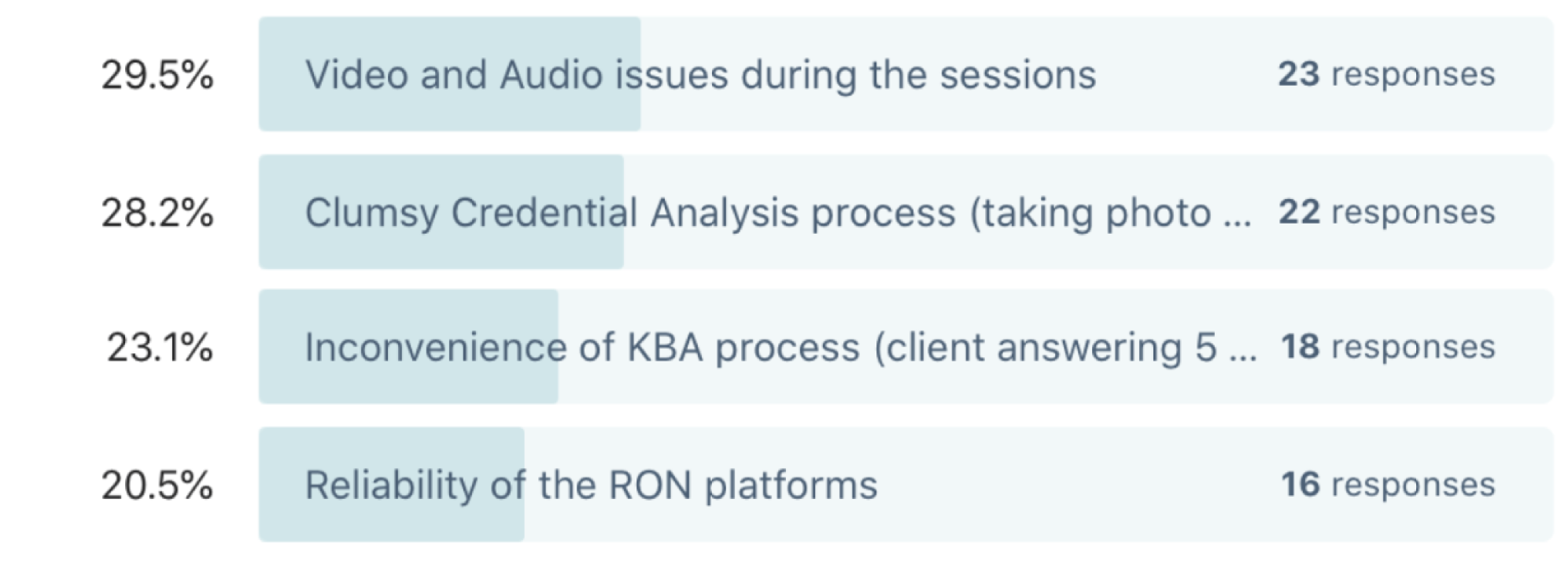
On the other hand, high demand and competition are motivating platforms to improve their services and develop new functionalities.
Obstacles Preventing from Doing Remote Online Notarizations
We’ve asked notaries who haven’t tried RON yet what prevents them from trying. Many appear to be in the active exploration phase or have already started their preparation to become an online notary.

The list of concerns that stops notaries is pretty straightforward: financial feasibility, getting clients, and learning more about the online notarization process.
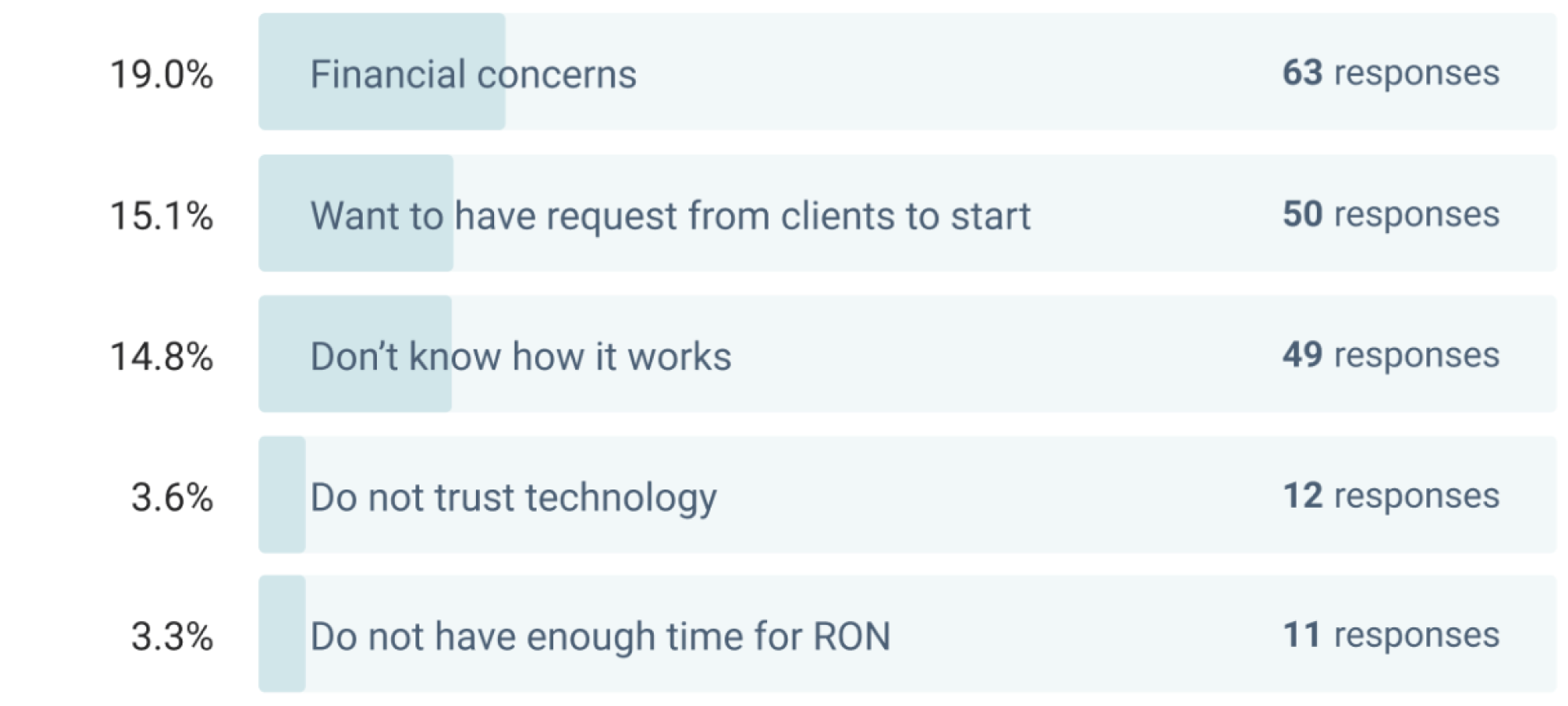
Online Notary Budget
There are many ins and outs. For the setup, notaries are going to need a steady internet connection, a laptop with a camera good enough to support video conferencing (if it works for your Skype sessions with family, it will work for online notarization), a digital certificate, an electronic seal and the online notary commission state fee. Notaries may already have several of these items before they start. Additionally, notaries may need to purchase a bond, additional errors & commissions insurance, and/or a platform service fee. Once you invest in the setup, the notary will be able to add online notarization services to existing notary business. Most states increase the cap on every signature for online notarization, responding to the increased costs online notaries absorb to offer online services. The more clients you serve online, the faster notaries recoup costs.
Requests from Clients for a Online Notarization
Often, the main reason why clients do not ask for an online notarization is that they simply do not know about the possibility. Online notaries have a major role in educating the public about the availability of online notarization.
Information on Online Notarization
The body of knowledge about online notarization grows every day. One of the major driving forces in the industry are the experienced notaries creating Facebook groups, YouTube videos, and online masterclasses to share their knowledge. Online notarization service providers create supporting material for their existing and prospective customers. There is also an opportunity for a creator to publish an online notary workbook right now. Just google it!
Training
Some states make it required, some allow notaries to research on their own. What we see from the study is that proper training and practice give notaries confidence in performing online notarizations.
There are plenty of services offering online notary training these days. State certified agencies, as well as independent experts, abound. Research well before choosing. Read feedback. Explore materials offered by the training provider online. Seek good counsel.
In addition to official training, some RON platforms offer their notaries free practice notarizations. Notaries can try how it works in real life with friends and family before initiating a session with a client.
Is Online Notarization the Future?
The majority of the survey respondents who did not complete a RON yet say that they plan to give it a try in a month or two.

Notaries who completed a RON prefer it over offline and would recommend it to their clients.
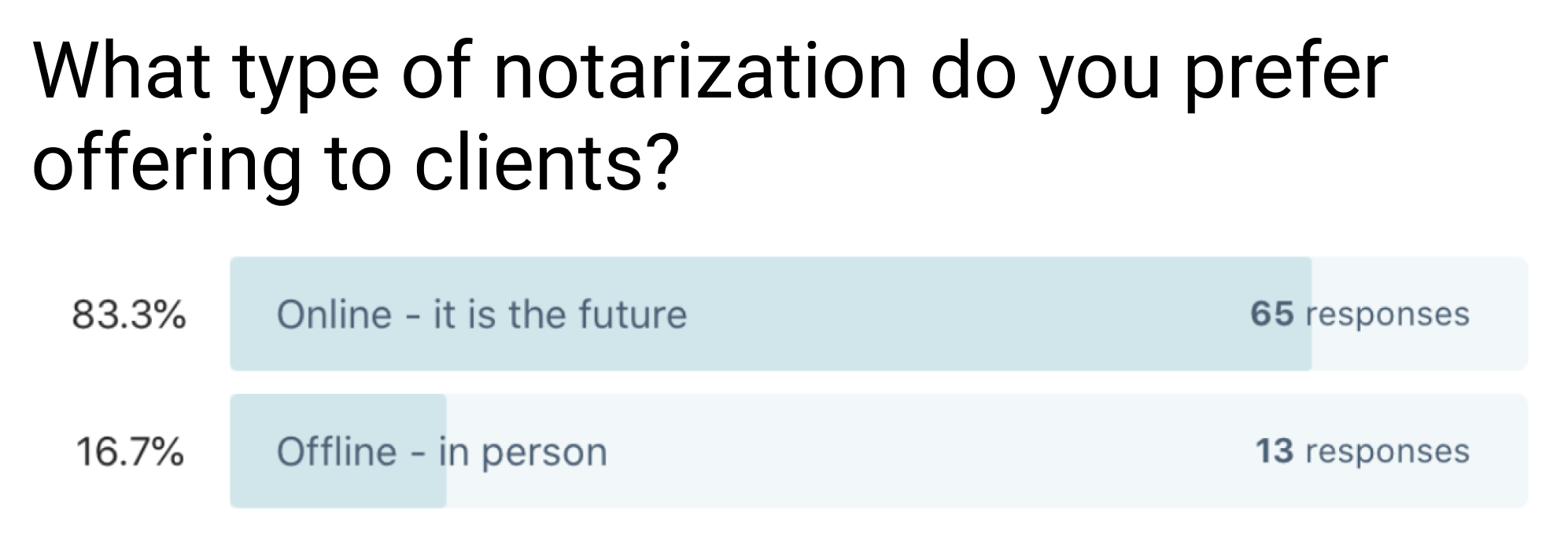
Conclusion
We see that the digital transformation of the notarization industry has already begun. The technology is gaining more trust amongst clients and notaries. Convenience, security, and state adoption rates help.




